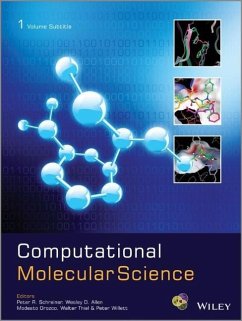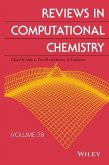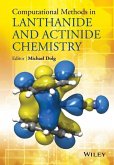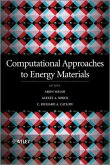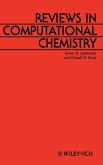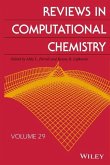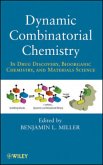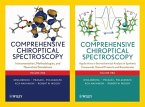Easy access to information on all aspects of molecularcomputations Order the six-volume set today and benefit from the specialintroductory price - full details below
Computational Molecular Science is the successor of thehighly acclaimed Encyclopedia of Computational Chemistry ,which was published by Wiley in 1998, and is the ultimate resourceon all aspects of computational chemistry and its applications inchemistry, biology and materials science.
Capturing the interdisciplinary flavour of the field, authorsaddress key topics from differing perspectives such as chemistry,biology and materials science.
In order to make the material accessible to students,practitioners and researchers alike the content is presented atdifferent depths and levels in a range of article types:
Overviews provide broad and non-technical treatment ofimportant topics at an accessible level
Key areas of research in the style of leading review journalsare presented in Advanced Reviews for researchers andadvanced students
Focus Articles present short, technical contributionsdescribing specific real-world issues, e.g. implementationsetc.
Software Reviews feature specific software packages ofhigh utility in the field, with an emphasis on their capabilitiesand implementation rather than methodology
Opinions present individual perspectives from thoughtleaders in the field
A special focus has been placed on computations and modeling ofrelevant biomolecules which are essential to new developments inmedicinal chemistry.
Covering all areas relevant to the understanding ofcomputational molecular methods the content is structured in thefollowing sections:
Computer and Information Science includes a wide rangeof techniques and applications used in cheminformatics, such asartificial intelligence, patent information, semantic web, datamining, automated synthesis design, etc.
Electronic Structure Theory covers computations ofmolecules based on ab initio quantum molecular methods anddensity functional theory
Simulation Methods includes free energy methods,molecular dynamics, Monte-Carlo methods and molecularmechanics
Software describes examples of commercial and sharewaresoftware packages for molecular computations and modeling
Structure and Mechanism concentrates on applications inthe areas of computational biochemistry and biophysics,computational materials science, molecular structures and dynamics,and reaction mechanisms
Theoretical and Physical Chemistry includes reactiondynamics, kinetics and spectroscopy
Experience the scope of content in Computational MolecularScience for yourself with a selection of free articlesavailable to download now: Predictions of protein-RNAinteractions Cheminformatics and the Semantic Web: adding valuewith linked data and enhanced provenance Density functional theory in materialsscience Metadynamics Noncovalent interactions in biochemistry All chapters included in Computational Molecular Science have also been published online in WIREs ComputationalMolecular Science between January 2011 and June 2014. WIREs Computational Molecular Science Wiley I nterdisciplinary Re views, or short WIREs , combine the best possible features of majoronline reference works (didactic structure, high visibility, fastsearches, and electronic accessibility) with the completeness,rigor, and overall high quality of review journals.
WIREs Computational Molecular Science uses all theadvantages of the WIREs concept and is the logical onlinesuccessor of the highly acclaimed Encyclopedia of ComputationalChemistry . As a review journal WIREs Computational MolecularScience includes all the material published in the book editionand will continue to publish much more material in the future,establishing itself as THE REVIEW JOURNAL in the field ofcomputational chemistry and biology, offering the followingadvantages:
An impact factor of
Hinweis: Dieser Artikel kann nur an eine deutsche Lieferadresse ausgeliefert werden.
Computational Molecular Science is the successor of thehighly acclaimed Encyclopedia of Computational Chemistry ,which was published by Wiley in 1998, and is the ultimate resourceon all aspects of computational chemistry and its applications inchemistry, biology and materials science.
Capturing the interdisciplinary flavour of the field, authorsaddress key topics from differing perspectives such as chemistry,biology and materials science.
In order to make the material accessible to students,practitioners and researchers alike the content is presented atdifferent depths and levels in a range of article types:
Overviews provide broad and non-technical treatment ofimportant topics at an accessible level
Key areas of research in the style of leading review journalsare presented in Advanced Reviews for researchers andadvanced students
Focus Articles present short, technical contributionsdescribing specific real-world issues, e.g. implementationsetc.
Software Reviews feature specific software packages ofhigh utility in the field, with an emphasis on their capabilitiesand implementation rather than methodology
Opinions present individual perspectives from thoughtleaders in the field
A special focus has been placed on computations and modeling ofrelevant biomolecules which are essential to new developments inmedicinal chemistry.
Covering all areas relevant to the understanding ofcomputational molecular methods the content is structured in thefollowing sections:
Computer and Information Science includes a wide rangeof techniques and applications used in cheminformatics, such asartificial intelligence, patent information, semantic web, datamining, automated synthesis design, etc.
Electronic Structure Theory covers computations ofmolecules based on ab initio quantum molecular methods anddensity functional theory
Simulation Methods includes free energy methods,molecular dynamics, Monte-Carlo methods and molecularmechanics
Software describes examples of commercial and sharewaresoftware packages for molecular computations and modeling
Structure and Mechanism concentrates on applications inthe areas of computational biochemistry and biophysics,computational materials science, molecular structures and dynamics,and reaction mechanisms
Theoretical and Physical Chemistry includes reactiondynamics, kinetics and spectroscopy
Experience the scope of content in Computational MolecularScience for yourself with a selection of free articlesavailable to download now: Predictions of protein-RNAinteractions Cheminformatics and the Semantic Web: adding valuewith linked data and enhanced provenance Density functional theory in materialsscience Metadynamics Noncovalent interactions in biochemistry All chapters included in Computational Molecular Science have also been published online in WIREs ComputationalMolecular Science between January 2011 and June 2014. WIREs Computational Molecular Science Wiley I nterdisciplinary Re views, or short WIREs , combine the best possible features of majoronline reference works (didactic structure, high visibility, fastsearches, and electronic accessibility) with the completeness,rigor, and overall high quality of review journals.
WIREs Computational Molecular Science uses all theadvantages of the WIREs concept and is the logical onlinesuccessor of the highly acclaimed Encyclopedia of ComputationalChemistry . As a review journal WIREs Computational MolecularScience includes all the material published in the book editionand will continue to publish much more material in the future,establishing itself as THE REVIEW JOURNAL in the field ofcomputational chemistry and biology, offering the followingadvantages:
An impact factor of
Hinweis: Dieser Artikel kann nur an eine deutsche Lieferadresse ausgeliefert werden.

